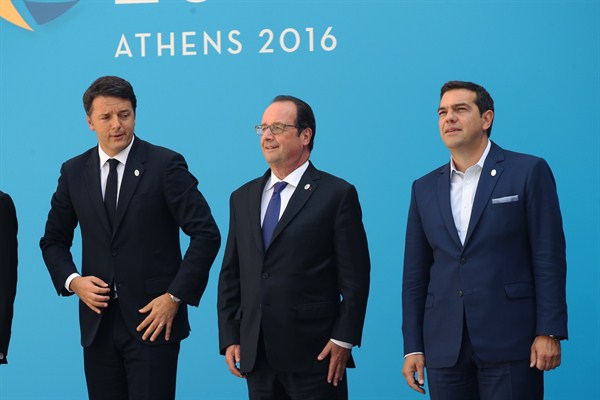The next time they meet, Matteo Renzi, the soon-to-be former Italian premier, and Francois Hollande, the lame duck French president, will probably take a moment to console each other for their recent misfortunes. Afterward, they might spend some time trying to figure out where things all went wrong.
Both entered office with the intention of bolstering the European Union’s fraying solidarity in the aftermath of the sovereign debt crisis that threatened to sink the euro and the union itself in 2009. Both were vocal advocates for a stimulus-driven response to the EU-wide economic stagnation that followed. Both are now political casualties of Brussels’ insistence on fiscal austerity. And both exit the stage against the backdrop of an EU more bitterly fractured than perhaps at any time in its history.
Hollande won France’s 2012 presidential election after a campaign in which he declared global finance to be France’s principal enemy and promised to renegotiate the EU’s fiscal pact constraining member states’ budget deficits. But alone against the weight of German Chancellor Angela Merkel and her Northern European allies, Hollande found himself unable to buck the Brussels-imposed austerity agenda. He subsequently toed the line, raising taxes and reining in spending, while offering tax credits to big businesses in a failed effort to jump-start hiring.

